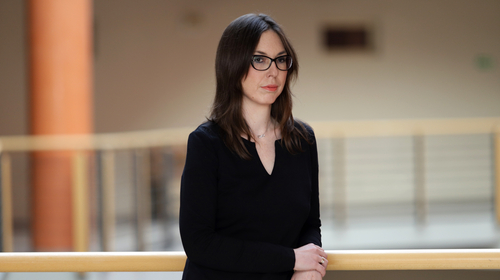Dr Agata Rudnicka from the Faculty of Management at the University of Lodz comments..

In the last few decades, environmental issues have taken a prominent place in public debate. However, this does not mean that every organisation has the need to conserve natural resources written into its strategy. This raises many problems, not only of an environmental nature, but also of a social one. The business world, in its pursuit of making more and more money and growth, has more than once lost sight of the broader perspective related to the negative consequences of its actions.
Today, as the vision of a future with a high risk of instability reaches the consciousness of an increasing number of people – representatives of business, science, administration and us consumers – we are beginning to look for ways to redefine hitherto irresponsible patterns of production and consumption.
Biodiversity is a priority
The need to take a broad view of biodiversity conservation is further reinforced by documents supporting business in reporting non-financial information. In both the Global Reporting Initative (GRI) standard and the EFRAG guidelines relating to the latest EU regulations on non-financial disclosure, the issue of biodiversity is raised to a strategic level. Linking business to impact on the living elements of the ecosystem, monitoring this impact and undertaking ecosystem protection activities will not only allow systematising the knowledge of the state of the natural environment. Still, it will provide the basis for more integrated measures to protect it from further negative impact.
Moreover, biodiversity must also be cared for from the perspective of restoring it to its pre-overexploitation state. The world already needs the equivalent of more than one and a half of Earth to cover humanity's resource needs, which shows the scale of interference with nature and forcefully justifies the need for companies to take a proactive approach to take responsibility for consciously shaping this area and linking it to business objectives and the financial dimension.
The environment should be thought of both as a common good but also as a unique resource for each organisation. Given the depletion of resources and the interdependence between climate change and the availability and quality of resources such as drinking water or forests, the business should not externalise costs, i.e. pass them on to others – including the environment. On the other hand, the environmental dimension seems so crucial that it should be considered as a significant risk factor for the business’s success This framing of the problem leads us to consider biodiversity in the business category as a key or even critical resource to be cared for and protected. It is not without reason that the EU has defined a list of critical resources, seeing their importance to the success of the economy and integrating thinking about them into such strategic areas as climate change and the circular economy (CEE).
Closing the loop makes a difference
In order to operate in a way that does not damage the natural balance and respects human rights, business must take a holistic perspective on the environment. The approach to waste is a good example. In its case a new value has been recently recognised precisely within the framework of the circular economy.
For companies looking to maximise their positive social and environmental impact, the closed-loop economy is a good reason to rethink each stage of product creation in a way that saves resources and reuses them in the future when they become waste. In this action, business can learn a lot from nature. This means, among other things, a move away from non-reusable raw materials and the need to look for alternatives that meet the criterion of environmental friendliness, both in the short and long term. This also applies to such essential resources as water and energy. Thinking strategically about resources and approaches to their use should become a basis of any business activity.
A broader perspective on business operations
When making business decisions, it is worth considering the interrelationships that occur in the natural world. Interference with nature always results in consequences. The extraction of fossil fuels and their combustion has significantly increased greenhouse gas emissions contributing to climate change and unpredictable weather events. Massive deforestation results in desertification and reduces production capacity. The land occupation for livestock farming reduces the amount of land for planting crops. Generating skyrocketing amounts of waste distorts the landscape and causes water, soil and air pollution. Examples can be multiplied indefinitely. The essence of these processes is their interdependence.
Business depends on the environment. Without resources, its sustainability is difficult. That is why, now that the challenges of modern times are so evident, it is worth looking at these relationships, revising views and setting goals that do not conflict with the principles of caring for present and future generations.
Author of the commentary: Dr Agata Rudnicka
Edit: Faculty of Management, University of Lodz
The mission of the University of Lodz is to conduct reliable research and actively disseminate facts and research results so as to wisely educate future generations, be useful to society and courageously respond to the challenges of the modern world. Scientific excellence is always our best compass. Our values include: courage, curiosity, commitment, cooperation and respect.
